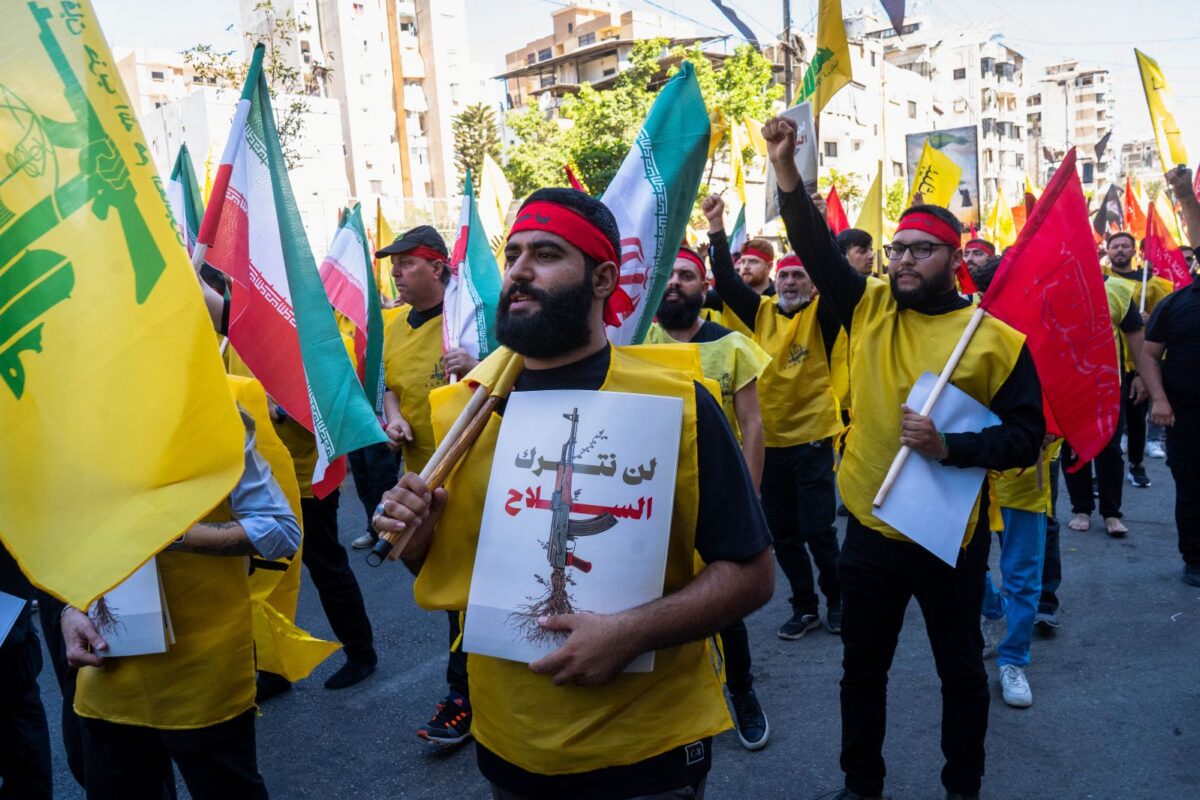
“He who took the monkey for its money, lost the money and kept the monkey.”
This saying came to mind as I read the recent news that Hezbollah has suspended its university and education stipends for the children of its fighters—both the living and the dead. The party justified the halt as a “temporary” measure, citing preparations for the anticipated confrontation with Israel and the need to divert its dwindling financial resources toward the war effort.
But this move reveals something far deeper than temporary austerity. It is part of a calculated effort to prepare Hezbollah’s inner base for the end of the era of financial prosperity and “fresh dollars.” The days of black-market speculation, dollar-denominated salaries, and the distribution of surplus cash as a form of social control are over. What we are seeing now is an implicit declaration that the next phase will be one of “perpetual martyrdom”—a cycle of endless death for a forever-delayed “victory.”
Perhaps the greatest myth Hezbollah has perpetuated is not merely that it is a “resistance movement,” but that it is “clean-handed”—that the money flowing to its institutions and social base is pure, even if it comes from smuggling across borders or from the Captagon trade that has generated billions for the party and its Syrian allies. Hezbollah cloaked its parallel economy in religious rhetoric, all the while functioning as part of a vast regional criminal enterprise.
In truth, Hezbollah’s model is not so alien to Lebanon. During the civil war, most militias developed their own economies and paid stipends to the families of their “martyrs.” Some still do, through party institutions or discreet cash envelopes handed out by warlords in new political suits. The difference is that most militias stopped producing “martyrs” en masse—Hezbollah did not. Its involvement in the Syrian war alongside Bashar al-Assad turned its youth into fodder for a war machine.
That war didn’t merely stain Hezbollah morally—it also exposed its fighters and made their families targets. In just one year, Israel managed to eliminate them one by one during the failed “support front” campaign.
Despite its unique religious doctrine, Hezbollah mirrors Lebanon’s other political parties in its corruption. For years, it hid this rot behind alliances and through its deep penetration of state institutions, both security and administrative.
What deepens this crisis is not just Hezbollah’s internal austerity and its retreat from its social commitments, but the Lebanese state’s continued silent complicity with this model. Rather than impose the rule of law and disarm all illegal armed actors, the state has adapted to the reality of the “mini-state,” granting Hezbollah political and institutional cover to dominate the levers of national power. Accepting illegal weapons and justifying them under hollow slogans like “resistance” is a blatant betrayal of the very idea of a state—and a direct contribution to Lebanon’s ongoing social and national collapse. How can we imagine a new social contract, or rescue what remains of the economy, in a system dominated by militias that view the country as a reservoir of fighters for endless wars?
But no matter how intense the ideological hallucinations or religious mobilization may be, people remain bound to material reality. No one continues to support a political or religious project that fails to deliver basic economic or social security. Over time, Hezbollah’s safety net has eroded, and the illusion of its “state within a state” has unraveled into a house of cards.
This suspension of benefits is no bureaucratic detail. It is an early warning—a harsh reminder to both the beneficiaries and the victims—that a university degree, with all its personal and collective promise, is far more valuable than a “martyrdom” in the service of a tyrant disguised as a victim, sending young men to die in unending infernos.
This article originally appeared in Nidaa al-Watan
Makram Rabah is the managing editor at Now Lebanon and an Assistant Professor at the American University of Beirut, Department of History. His book Conflict on Mount Lebanon: The Druze, the Maronites and Collective Memory (Edinburgh University Press) covers collective identities and the Lebanese Civil War. He tweets at @makramrabah







